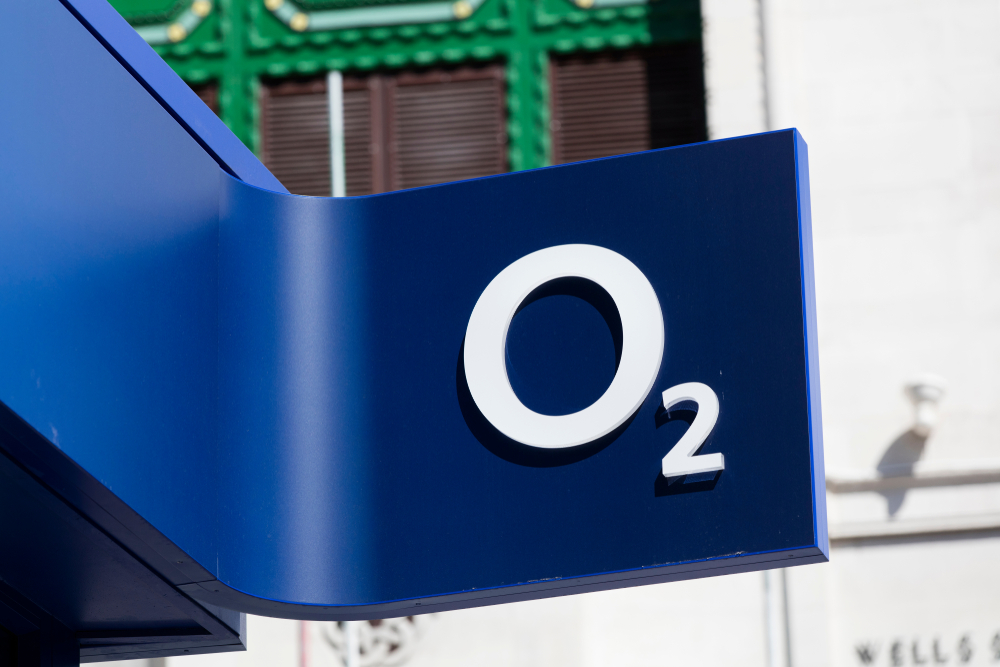5G-less O2 swipes at Vodafone's 'fake' 5G
O2's CEO weighs in on Vodafone's 5G packages and how they don't offer users the true 5G experiecne


O2 has taken a curious swipe at Vodafone's 5G network this week claiming it doesn't offer 'real 5G', making it the second major British operator to aim such an allegation against another this week.
At a media roundtable held on Wednesday, O2 CEO Mark Evans targeted Vodafone's 5G plans and the speeds they offer saying they are deliberately no better than previous generations of mobile connectivity.
"[Vodafone has] launched three price points for unlimited data. One could say 2 Mbps would correspond to a 3G service, 10Mbps is broadly a 4G service and 30 is for 'fastest'. Remember those are capped speeds at 2Mbps and 10Mbps," said Evans, as reported by Gizmodo.
"I thought Vodafone's launch was simple, clever and effective. But if you contrast that with advertising standards in fibre broadband, where people talk about the theoretical speed one might get, I thought the rules were tightening on that. I don't know where 'up to' sits.
"Customers haven't really got a 5G experience at 2 Mbps; it's 3G. But I give credit to Vodafone for making a fundamental shift change in pricing and tariff."
Vodafone entered the 5G market with a USP tailored to unlimited data, seemingly in a bid to combat the fears that users would rifle through data caps with the superfast network.
Offering three packages at different price points, its 5G services were instead limited by the maximum speed available - much like how home broadband packages are constructed.
Sign up today and you will receive a free copy of our Future Focus 2025 report - the leading guidance on AI, cybersecurity and other IT challenges as per 700+ senior executives
"Vodafone's 5G network launched just over a month ago and is available in more cities than any other UK operator - our 5G plans cost the same as our 4G ones," said a Vodafone UK spokesperson to IT Pro. "We look forward to seeing O2 follow our lead."
This feud comes in the same week as EE making the same allegation in Three's direction after the company led its marketing strategy for its own 5G network with the tagline: "if it's not Three, it's not real 5G".
EE, along with four members of the public, filed a complaint with the Advertising Standards Authority (ASA) suggesting that Three broke advertising regulations by misleading the public and claiming its network was superior to others.
Three responded by pointing to their far superior spectrum holdings as a result of their Broadband UK acquisition, meaning it met the minimum standards for 'real 5G' as set out by the International Telecommunication Union (ITU).
O2's attack on Vodafone is also thought-provoking since the two companies expanded their alliance which involved the pair sharing each other's physical 5G infrastructure such as the immoveable masts, to accelerate both their respective 5G rollouts.
O2's 5G network is due to go live in October with a date still unconfirmed at the time of writing. As such, time will tell how O2 approaches its packaging of 5G plans and the marketing to support it.

Connor Jones has been at the forefront of global cyber security news coverage for the past few years, breaking developments on major stories such as LockBit’s ransomware attack on Royal Mail International, and many others. He has also made sporadic appearances on the ITPro Podcast discussing topics from home desk setups all the way to hacking systems using prosthetic limbs. He has a master’s degree in Magazine Journalism from the University of Sheffield, and has previously written for the likes of Red Bull Esports and UNILAD tech during his career that started in 2015.
-
 I couldn’t escape the iPhone 17 Pro this year – and it’s about time we redefined business phones
I couldn’t escape the iPhone 17 Pro this year – and it’s about time we redefined business phonesOpinion ITPro is back on smartphone reviews, as they grow more and more intertwined with our work-life balance
-
 When everything connects, everything’s at risk
When everything connects, everything’s at riskIndustry Insights Growing IoT complexity demands dynamic, automated security for visibility, compliance, and resilience